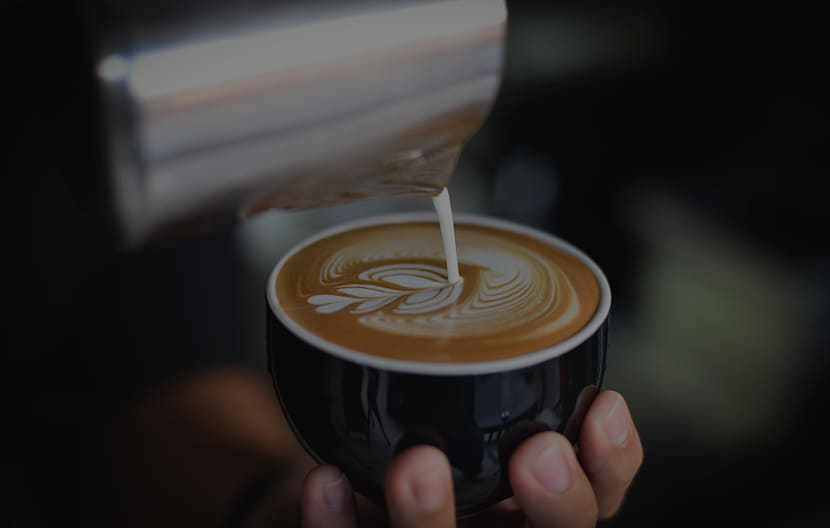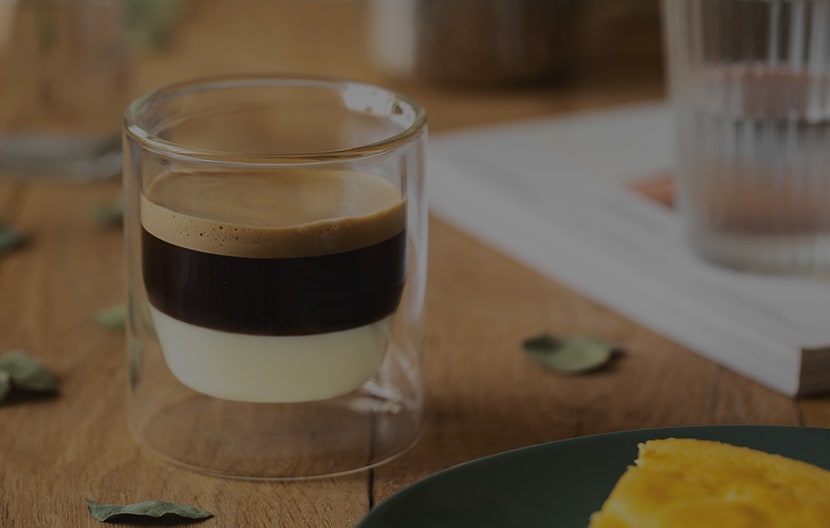Nespresso, Nescafè® and Dolce Gusto® are trademarks of a third party without any link with Luigi Lavazza S.p.A


The Meaning of Coffee Decaf
In the world of coffee, there is a delightful alternative that offers the same warmth and aroma without the sometimes inconvenient buzz of caffeine. This alternative is none other than decaf, which brings all the pleasures of a good brew without the jitters and sleepless nights. Let’s learn more about it here!
What Does Decaf Mean?
The simple decaf definition is coffee that has been decaffeinated, meaning that most of the caffeine content has been removed. It is important to note that decaffeination does not render it completely caffeine-free. However, it reduces it by around 97% compared to a regular cup.
When it comes to coffee, the term "decaf" stands as a beacon of hope for those who enjoy the rich and robust flavours of this beloved beverage but wish to avoid the stimulating effects of caffeine.
How is Decaf Coffee Made
There are various methods to remove caffeine from the beans, which usually involve water, organic solvents, or carbon dioxide. The process of decaffeination often begins with immersing beans in a solvent, which extracts it.
An alternative approach employs carbon dioxide or a charcoal filter. Usually known as the Swiss Water Process, for caffeine removal. Decaffeination occurs before the beans undergo roasting and grinding. Meaning that decaf resembles regular coffee except for the lower caffeine levels.
Another concequence of the decaffeination process is that the taste and aroma might become milder. This makes decaf a more appealing option for those sensitive to the bitterness and strong aroma of regular coffee.
Curiosities About Decaf Coffee
Many curiosities lie in the misconceptions surrounding decaf. Many believe that decaf is tasteless or lacks the complexity of regular coffee, but this is far from the truth. With advancements in decaffeination processes came an increasing demand for high-quality decaf coffee beans. Many decaf options can please even the most discerning palates.
LESS CHANCE OF ADDICTION
Decaf offers the pleasure of a flavourful cup without the risk of addiction. Some might even discover a preference for it with its unique flavour profile and versatility in brewing methods. So, embrace the experience and savour the taste without caffeine-related concerns.
TASTE
Some decaffeination methods preserve the incredible flavours and aromas of coffee beans. One such technique involves using Liquid Dicarboxylic Acid to extract caffeine from raw coffee beans.
The mild conditions preserve the coffee beans' original taste, richness, flavour, and smell. The beans treated with this process allow you to enjoy the best of both worlds - rich flavour without caffeine.
HEALTHIER THAN THE ORIGINAL
Caffeine has been associated with various health risks. Particularly for individuals with a sensitive metabolism. This can lead to issues like high blood pressure. With Decaf espresso meaning there is reduced caffeine content, it offers a way to savour all the joys of a good cup without the associated risks.
DRINK AS MUCH AS YOU WANT
With its lower caffeine content, decaf allows you to let loose and go wild in aisles without the worry of the jitters, a racing heart or restless night that caffeinated drinks can bring. With decaf, you can enjoy cup after cup without these pesky side effects, making it a perfect choice for drinking long into the evening.
The Pleasure of a Coffee That Can Also Be Enjoyed at Night
One of the most delightful aspects of decaf is the pleasure it brings to those who like to enjoy a relaxing cup of coffee after a long hard day at work or managing mischievous and roudy offspring. It is a great companion when relaxing, chatting with friends, or spending some quality time with your partner. Decaf still has that great scent and comforting taste, but it won’t affect your sleep.
With decaf coffee meaning there is almost no caffeine, you enjoy brewing and drinking it, even late at night. It complements cosy moments, such as reading a book under a blanket, indulging in a delicious dessert, or simply relishing the peace and tranquillity after the kids have gone to bed. In this sense, it transcends its functional purpose and becomes a source of comfort and enjoyment.





















